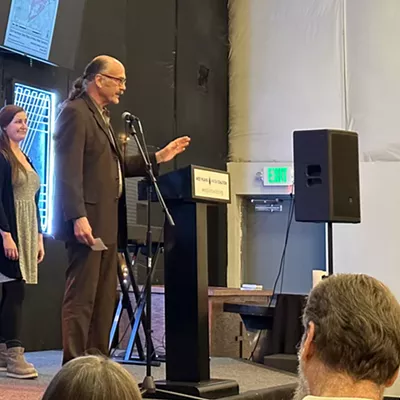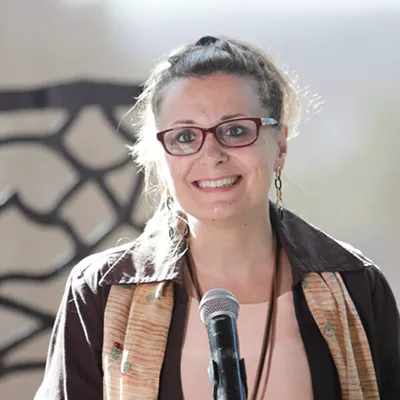Despite dozens of characters, discouragingly serpentine storylines and countless plot threads, Gaghan finds a way to both stay on message throughout and, by the end, have the audience convinced he's debunked one of America's grandest and oldest talking points. It's not freedom we love, believes Gaghan, it's safety and prosperity. To this he adds very little of the emotional flab many such thrillers attach. CIA man Bob Barnes' (George Clooney) family is given exactly one scene and one peripheral mention. His kid doesn't want to move to the Middle East; his wife is also an agent. It's just enough to tell you that Bob's allegiance is to his country, his work and his agency, though it doesn't offer much more.
The broad lack of those classic human story elements, however, shouldn't suggest a lack of humanity or feeling. Syriana is suffused with emotion; it's just in a form that we're not used to identifying as such. It's passion -- the passion ideologues have for their ideals, the passion of faith and of commitment. Gaghan isn't content to give faith only to the righteous, though. Faith is something, he believes, that can be had by anyone, be it faith in God, faith in money, faith in one's own invincibility, faith in a political or philosophical system, or, in the case of Danny Dalton (Tim Blake Nelson), faith in corruption. ("Corruption is why we win," he rants, with complete conviction.)
Faith, in Syriana, makes the bad guys terrifyingly effective and the good guys tragically impotent. Barnes will never get the desk job he covets because he believes that success in national policy should depend more on being right than on being politic. Prince Nasir's coup is flawed because he believes that geopolitics allows for self-determination -- that little countries can make their way without friends in the West.
Syriana is so heartbreaking because it shows how we actively suppress in developing nations the very faith that America was built on -- how we trade their freedom for our security. It's the slow and, Gaghan suggests, irreversible hardening of the most idealistic national experiment in history, and that makes Syriana just about the most tragic story I can imagine.














